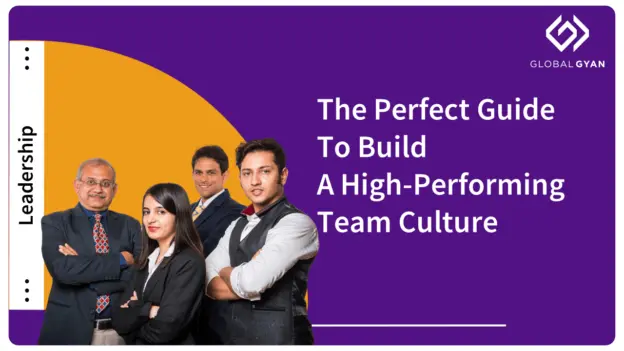Leading With EQ, Not Just IQ—The Emotionally Intelligent Leader


Leadership isn’t just about calling shots! But you knew that, right? It’s not just about wearing the title, sitting in corner offices, or having the fanciest degree from the coolest college with a trendy acronym for its name. No! Leadership, real leadership, is about connection. True leadership is understanding yourself so well that you are able to understand the pulse of those around you.
You know, there’s something that sets good leaders apart from the great ones. Something that whispers beneath the surface of every strong relationship, every strong team. It’s not IQ, it’s not technical skills. It’s Emotional Intelligence.
Did you know that 90% of top performers in leadership roles exhibit high Emotional Intelligence?
Now let’s talk about what Emotional Intelligence really means.
What is Emotional Intelligence?
Daniel Goleman, an American psychologist and author defined Emotional Intelligence as ‘the capacity for recognizing our own feelings and those of others, for motivating ourselves, and for managing emotions well in ourselves and in our relationships’. In simple words, it is the ability to manage your own emotions and those of others.
Daniel Goleman penned a book first published in 1995 called “Emotional Intelligence: Why It Can Matter More Than IQ” speaking of the critical role that emotional intelligence plays in shaping our lives, relationships, and achievements.
Emotional Intelligence – also known as EQ – is like a superpower. It’s not just about emotions but mastering them. It is about understanding what’s happening inside you and what’s happening inside them. It is about the ones looking at you, waiting for your words to guide, to calm, and to inspire.
To some, all of this may sound complex, but believe me when I say, it’s simple!
Let me break it down for you.
According to Goleman, there are five pieces to this puzzle:
- Self-Awareness: the ability to recognize your emotions.
- Self-Regulation: the power to control your emotions, before they control you.
- Motivation: that deep internal drive pushing you to grow and evolve, not for the applause, but because it’s in your bones to strive
- Empathy: understanding the unspoken. Feeling what they feel, before they even say a word.
- Social Skills: the art of connection, the glue that binds teams, ideas, dreams.
Why Emotional Intelligence Matters in Leadership
Let’s be really honest for a second.
In today’s world, being a leader isn’t only about Strategy and Execution – it’s also about navigating the emotional tides, steering through waves of uncertainty, stress, conflict – sometimes even joy and excitement. And in this journey, Emotional Intelligence is your compass.
Communication That Actually Means Something
An audience doesn’t listen to an emotional intelligent leader, they connect with them. Emotionally Intelligent leaders feel the room, they see beyond words. They know when to lean in and when to pull back. They are able to handle tough conversations – the ones where you have to tell someone what they do not want to hear. Emotionally Intelligent leaders have conversations in a way that leaves everyone stronger, not broken!
Stronger Bonds, Stronger Teams
You need EQ if you aim at building a team that’s more than people just working together. Leaders with high Emotional Intelligence make others feel safe, seen, heard and valued. When people feel emotionally supported, they show up! They give more, they trust – and trust is the foundation of everything.
Brilliant Decision-Making with a touch of Heart
Emotionally Intelligent leaders don’t get swallowed by the moment when the pressure’s on and the stakes are high. They take a breath and pause a little. They feel what’s inside themselves and refrain from letting chaos take the wheel. Their decisions are made with a steady hand, clear mind, and a heart that understands the people whom these decisions will impact.
Growth with Conflict
Let’s face it – conflict is going to happen. People clash, Personalities clash and Ideas clash. How you handle it is what defines you as a leader. When you’ve got EQ, you don’t fear conflict – you use it. You listen deeper to the emotions at play – beyond words. Leaders with EQ can navigate the tension, find common ground, and help their people grow from their experience.
Mountains moved through Motivation
Emotionally Intelligent leaders don’t just manage people, they inspire them. They observe and understand what makes people tick. They find what lights them up and then proceed to tap into that power. They are able to motivate people and motivation that comes from within is powerful – more than any paycheck or title.
Understanding the Five Components
Now, let’s go deeper. These five components of emotional intelligence—they’re not just buzzwords. They’re the tools you need to lead with heart and with strength.
Self-Awareness
Leaders who are self-aware are real to themselves, they see them themselves – flaws and all. They are aware of what makes them tick and what their triggers are. Because they know that, they do not allow themselves to be triggered. They simply adjust, adapt and rise above their own emotions to lead from a place of clarity.
Picture this – in the heat of a meeting, you feel the frustration bubbling up inside. A self-aware leader? They catch it, they pause, and they don’t let the frustration speak for themselves. Instead, they let reason take the lead and keep the conversation productive.
Self-Regulation
And then, there’s self-regulation. This is like being in the driver’s seat of your own emotional vehicle. No matter how rough the roads get, you don’t let the bumps and ditches toss you around. You CHOOSE how to respond. That means no emotional outbursts, no knee-jerk reactions – just steady, calm leadership.
You receive bad news? You don’t lose it. You take a breath, you assess, and you respond not from a place of panic but a place of strength.
Motivation
Motivation is that fire that burns from within. The thing that keeps you moving when everything else says ‘stop’. This motivation is not just about titles or paychecks, but about the mission. It’s about pushing forward for the love of the work, for the team and for growth. When you lead from that place, your people feel it.
Then?
Then they catch that fire too.
Empathy
Empathy – now, this one’s a game changer. Empathy is listening, really listening – to not just the words being spoken but also the emotions behind them. In simple words, it’s the ability ton understand the struggles your people face without them having to explain every little thing. It’s stepping into their shoes and leading with compassion.
If you’ve got an employee who is stressed due to something personal? An empathetic leader knows how to give them space and offer support, without them ever needing to ask.
Social Skills
Ultimately, there’s social skills – the binding glue. Social Skills are about building bridges, not walls. Managing relationships with elegance, leading with influence, not authority. When you’ve got social skills, you don’t just manage people – you lead them to places they never thought they could go.
How to build your Emotional Intelligence
Here’s the thing: Emotional Intelligence isn’t something you’re just born with, it’s something you build over time. So how do you get there? Let me tell you how I did…
Firstly, start with yourself. Reflect on your emotions, your reactions. Try journaling it out. After a while of doing this, you will start to recognize the patterns in how you feel, what you feel, what makes you feel/react and how. Then you will start to understand how these feelings shape your actions. Self-Reflection is key.
Then, Ask for Feedback. Ask for real feedback. It’s not always easy to hear, and sometimes it may sting a little – but it’s gold. Try asking your peers, you team – how do they see you managing your emotions? Where can you improve? What can you do better? Blind spots are usually filled in through the eyes of others.
Heard of Mindfulness? I’m sure you have. But what does it mean in Leadership? Practicing Mindfulness means staying present and not letting stress or distractions pull you away from the moment. It means being here and now – fully! Because when you’re present in the present, you can handle your emotions and those around you, with grace.
Be a good listener. Even better, be an Empathetic Listener. Don’t listen to respond, listen to understand. When you truly listen to your people, you’ll lead from a place of empathy, and they’ll trust you even more.
And finally, strengthen those social skills. Build relationships that go beyond work. Get to know your team on a personal level, create trust, and foster an environment where people feel valued.
Final Thoughts
You know, Emotional Intelligence doesn’t make you a good leader, it makes you a great one. It is what makes you not lose touch with your humanity in a world full of contracts, transactions and targets. When you master your emotions, when you lead with empathy and understanding, you create something bigger than yourself.
Leadership isn’t just about leading from the front. It’s about feeling the pulse of your people, leading with heart and mind, and lifting those around you higher.
So, how will you lead?
This article is contributed by Guan D’Penha, Senior Manager – Learning Solutions, GlobalGyan Leadership Academy. Wish to learn more about Emotional Intelligence? You can’t miss Guan’s 30-minute course on it! Enrol today and revamp your leadership prowess.






Responses